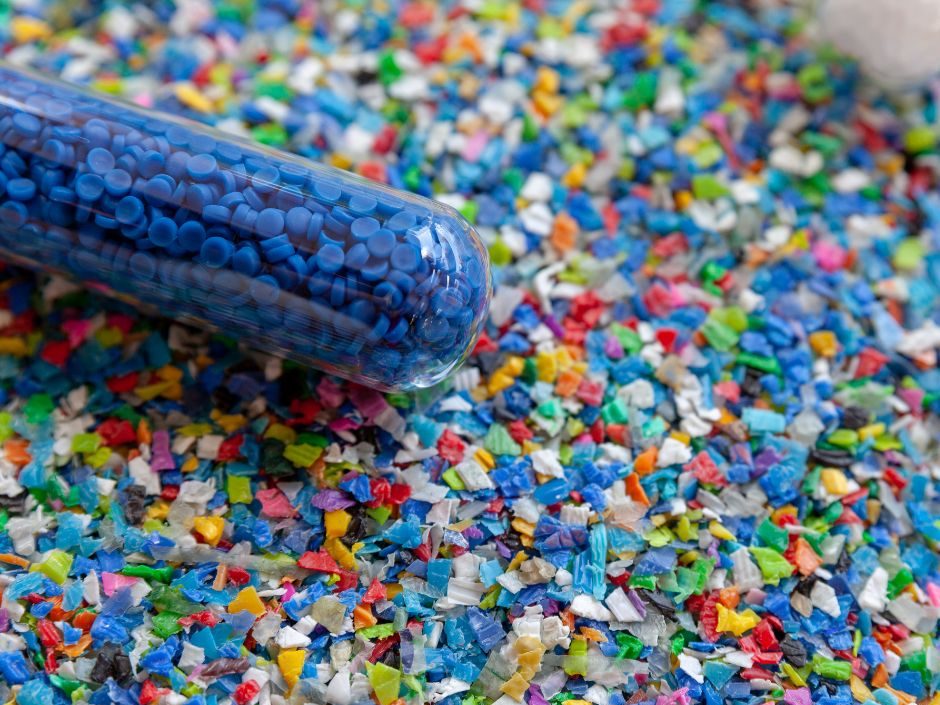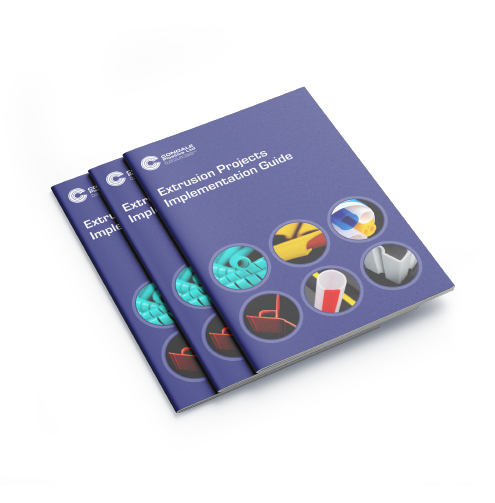
In an era where sustainability is paramount, the plastic extrusion industry is turning towards chemical recycling to pave the way of innovation and environmental stewardship. This forward-thinking approach transcends the limitations of traditional recycling, offering novel solutions for repurposing materials once deemed non-recyclable.
At Condale Plastics we’re working with our suppliers as they begin to explore chemical recycling solutions in order that we soon hope to be able to incorporate them into our extrusions.
Let’s explore the transformative impact of chemical recycling on the world of plastic manufacturing.
The Essence of Chemical Recycling
Chemical recycling stands out as a pioneering method for converting plastic waste back to its basic components. This technique is especially crucial for handling complex plastics, including those unsuitable for mechanical recycling due to their composition, such as mixed materials or laminates. It offers an additional way to reclaim and reuse materials, reducing waste and conserving resources.
Innovative Processes in Chemical Recycling
This technology is diverse in its methods, each tailored to specific types of plastics. Here is a snapshot of the current key chemical recycling techniques:
- Transforming Plastics through Purification: This advanced method involves dissolving plastics in solvents and purifying the resultant solution. It is particularly effective for extracting high-quality polymers from mixed waste streams.
- Reverting Back to Basics with Depolymerisation: Targeting polymers like PET, this process breaks them down into their monomeric forms. These monomers can then be repurposed to create new, high-grade plastic products.
- Creating New from Old with Feedstock Recycling: These represent a range of thermal processes that convert polymers into simpler, reusable molecules. Key techniques include:
- Pyrolysis: This process, ideal for mixed-polymer waste, involves heating plastics in an oxygen-free setting, breaking them down into basic hydrocarbons.
- Gasification: By heating mixed waste at high temperatures with limited oxygen, this method produces syngas, a versatile and valuable resource.
- Hydrothermal Treatment (HTT): Employing super-critical water to decompose complex compounds, HTT is effective for recycling tough materials like carbon fibre reinforced plastics and printed circuit boards.
A Step Towards Circular Economy
Chemical recycling is more than a technological breakthrough; it’s a cornerstone of the circular economy. This approach is critical in transforming waste into a resource, thereby reducing environmental impact and paving the way for sustainable material management. With both pilot and commercial plants emerging, the industry is witnessing a paradigm shift in how plastic waste is perceived and utilized.
Redefining Business in Recycling
The advent of chemical recycling has diversified business models within the recycling sector. This ranges from large-scale, centralised plants that serve broad regions to smaller, community-focused units. Each model presents unique operational methods, technological adaptations, and revenue streams, contributing to a more dynamic and resilient recycling industry.
Expanding Horizons in Plastic Extrusion
For those in the plastic extrusion sector, embracing chemical recycling means not just accessing a new stream of raw materials but also aligning with global sustainability goals. This technology enables the production of high-quality plastics from recycled materials, meeting the stringent demands of various industries, from packaging to automotive. As chemical recycling technologies mature and become more widespread, they offer the potential to fundamentally change the landscape of plastic production and waste management.
Revolusionising the Industry
Chemical recycling is poised to revolutionise the plastic extrusion industry by providing sustainable, high-quality materials for a broad range of applications. Its growth and integration into the plastic manufacturing process represent a significant stride towards a more sustainable and circular future. As the industry continues to innovate and adapt, chemical recycling will undoubtedly play a pivotal role in shaping the future of plastics.
For further information on the plastics chemical recycling process please refer to the insightful guide by the British Plastic Federation.



